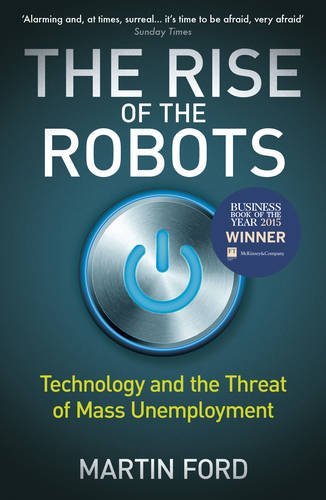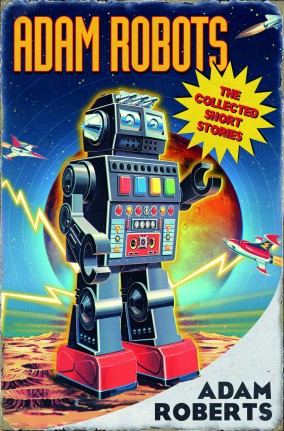
Despite its rather sensationalist-sounding title, The Rise of the Robots presents a grounded and rigorous argument for why we should regard technological unemployment as a looming threat to the viability of our existing economic structures.
The disintermediating effects of digitalisation and automation are a well-known discourse by now, at least in my circles – and there’s little doubt that it will lead to disruption and displacement of jobs. It has happened before, of course, with every preceding technological revolution – from the steam engine, to the assembly line, to the Internet. In the preceding cases, the normal mechanisms of capitalism have proven robust to such changes – technology destroys old jobs, but fosters new ones, and increased productivity gains have raised the total wealth levels of the population by redistributing gains through increased wages and lower costs of mass-produced consumer necessities.
The question on everyone’s minds is whether this pattern of creative destruction will hold true for digitalisation and automation. Does automation have the same job-creative potential? Or will it make vast sections of the workforce fundamentally unemployable? Ford methodically lays out the arguments for the latter. He starts by giving an overview of the coming landscape, arguing that automation is different because it can replace mental, not just physical work. Over some chapters, he looks into case studies of how digitalisation and automation might impact employment, not just in terms of lower-skill jobs, but white-collar and even professional jobs, such as in the healthcare sector, as well. For healthcare in particular, Ford argues that healthcare costs will not be driven down by automation even as healthcare jobs are replaced by robots, meaning that nobody really benefits from the scenario other than hospital owners.
Throughout, Ford retains a conservative stance with regard to the technology – he usually tries to ground his accounts in what is already possible. He does sometimes speculate on what could be possible in the longer term, such as generalised AI and the Singularity, but he doesn’t rely on them as the basis for his main arguments. To him, the technologies that are available today and are on their way to cresting the technology adoption curve already have the potential for massive economic disintermediation. And while new technologies do create new jobs, the kinds of jobs they will create are not at scale to offer employment to a majority of those affected.
Such disintermediation may manifest in even more extreme income inequality than we see today, with owners of automated systems and digitalised platforms acquiring the vast bulk of the value from technology, while the rest of the masses rendered superfluous by technology eke out a meagre living from the limited number of jobs left in the market.
But lest the cloistered tech elites think that they’re safe, existing economic structures may collapse in the face of technology. The global economy is driven by aggregate consumer demand, and if the masses are out of a job, then there will be far less consumer spending on the goods that are presumably produced by them, for them. Some might argue that productivity gains will drive down the price of consumer goods commensurately with wage levels, and thereby increase purchasing power, but it is unclear if the values of non-technological assets like land or debt would fall as well. Even if price levels did drop universally, it is hard to spend on goods when you have no income, as opposed to a lower income, if there are just not enough jobs available on the market. As such, automation and digitalisation could lead to a long depressive spell driven by the collapse of consumer demand.
Like many other prophets of technological unemployment, Ford points to a Universal Basic Income (UBI) as a simple, economically efficient, and administratively unburdensome way of apportioning the productivity gains from automation to consumers – a way to plug the collapse in the demand-driven economy. Ford sketches out a brief vision of how it could work, be paid for, and ways in which UBI can be calibrated in order to retain the incentive to be economically productive. While this vision needs more work to flesh out, and is probably unviable in the near term due to existing political and economic paradigms, it’s an appealing one, at least on paper. In the nearer-term, Ford does propose moving to a taxation regime more focused on capital rather than labor, and exploring a more socialist model of capitalism – where workers are compensated not via controlled wages, but by share of stock in the company.
Essentially, productivity gains through technology will create a world where not everyone needs to work, but existing economic structures that mandate that working is a prerequisite to economic reward, and uses apportioned rewards to power its own growth, will collapse when technology makes it so that not everyone can work. The Rise of the Robots makes a compelling, detailed and grounded case for this thesis, and although reading it in 2017, when such discourses are far more widespread than before, can feel like you’re being preached to about matters that you’re already familiar with, the book is a great summary of the arguments and an excellent primer for the less informed – and crystallises the case for UBI in a persuasive but economically sensitive way.
I give this book: 4.5 out of 5 techno-feudalist societies
 High on concept, (often) low on follow-through.
High on concept, (often) low on follow-through.